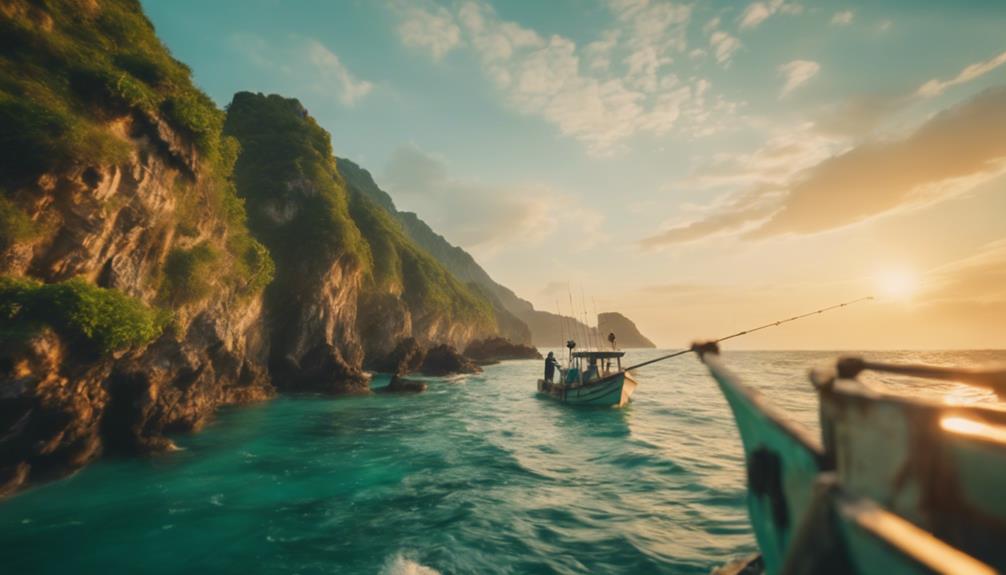Fishing is more than just a hobby; it’s a cherished tradition for many enthusiasts. However, understanding the rules and regulations around fishing, especially when it comes to seasonal closures, is crucial for a successful outing. In this guide, we will explore the question, “When does fishing season end?” and provide valuable insights into fishing seasons, regulations, and tips for anglers.
Understanding Fishing Seasons and Their Importance
Fishing seasons are established to protect fish populations and ensure sustainable practices within aquatic ecosystems. Different regions have varying fishing seasons, and these schedules are determined by local fishery management agencies. Knowing when fishing season ends is essential for anglers to comply with regulations and avoid potential fines. Furthermore, adhering to these seasons contributes to the preservation of marine life, ensuring that future generations can enjoy fishing as much as we do today.
Regional Variations in Fishing Seasons
One of the first things to consider when asking, “When does fishing season end?” is that the answer can vary significantly depending on your location. For instance, freshwater fishing seasons in the Northern United States may differ from those in the Southern regions. In states like Alaska, fishing seasons can be quite long due to the unique climate. Conversely, states with milder winters, such as Florida, may have year-round fishing opportunities for certain species. Always check your local regulations to ensure you are fishing during the appropriate time frames.
Common Freshwater Species and Their Seasons
When discussing fishing seasons, it’s essential to consider the various species targeted by anglers. For example, bass fishing season typically opens in the spring and may close towards the end of the fall, depending on the state. Trout fishing, on the other hand, often has a more defined season, with many states designating specific dates for opening and closing. Knowing when fishing season ends for each species can help you plan your trips more effectively and ensure you’re targeting fish during their peak activity periods.
Marine Fishing and Seasonal Closures
Just like freshwater fishing, saltwater fishing is also subject to seasonal regulations. Many coastal regions impose closures during specific times to protect spawning populations of fish like flounder, striped bass, and snapper. The timing of these closures can be influenced by various factors, including breeding cycles and environmental conditions. As an angler, staying informed about when fishing season ends for your targeted species is vital for complying with regulations and supporting sustainable fishing practices.
Seasonal Fishing Tactics and Techniques
Understanding when fishing season ends can also influence your fishing strategies. As seasons change, so do fish behaviors. For instance, as the water temperature drops in the fall, fish often move to deeper waters or seek out warmer areas. Adjusting your tactics accordingly—such as changing your bait or fishing locations—can lead to more successful outings. Also, consider that certain techniques may be more effective during specific times of the year. Therefore, knowing the end of fishing season can help you refine your approach and maximize your catch.
The Role of Local Regulations and Conservation Efforts
Local fishing regulations are put in place not only to manage fish populations but also to promote conservation efforts. Various states and regions implement restrictions such as size limits, bag limits, and seasonal closures to ensure sustainable fishing practices. When asking, “When does fishing season end?” it’s important to consider that these regulations are designed to protect aquatic ecosystems. Always consult your local fish and wildlife agency for the most up-to-date information on fishing seasons and regulations in your area.
Preparing for the End of Fishing Season
As the fishing season comes to an end, it’s essential to prepare for the transition. Some anglers take this time to reflect on their fishing experiences, clean and maintain their gear, and plan for the next season. Additionally, consider exploring other fishing-related activities, such as ice fishing in winter months or participating in local conservation events. This preparation phase not only keeps you engaged with your passion for fishing but also helps you stay informed about changes in regulations and techniques for the upcoming season.
Conclusion: The Importance of Staying Informed
In conclusion, knowing when fishing season ends is crucial for every angler. It allows you to fish responsibly, complies with local regulations, and contributes to the long-term sustainability of fish populations. The fishing calendar can vary widely based on your location and the targeted species, so always stay updated with local guidelines and seasonal changes. By being proactive and informed, you can ensure that your fishing adventures remain enjoyable and fulfilling year after year.
So, whether you’re a seasoned angler or just starting, always remember to respect the fishing season and its regulations, and keep the passion for this timeless activity alive in a sustainable manner. Happy fishing!
